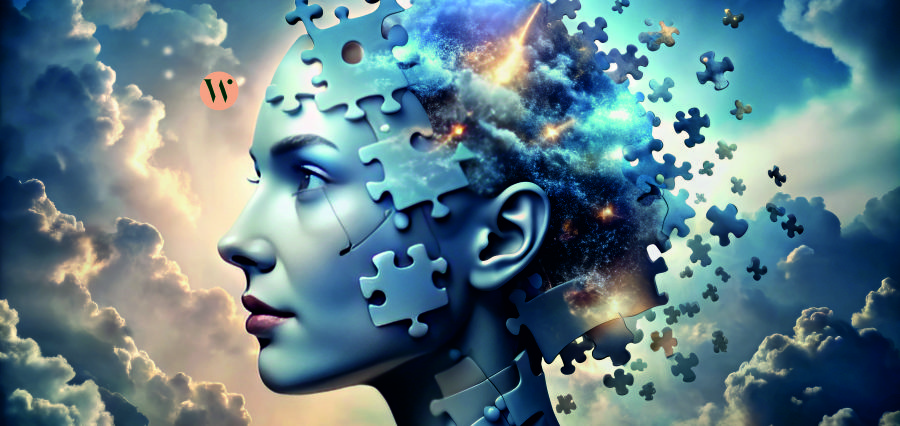Back to Normal
The field of psychiatry has seen increasing awareness of the relationship between brain structure and behaviour. This is the area of specialized medicine of neuropsychiatry, where experts study various neurological and psychiatric hard-core aspects that affect behaviours. Neuropsychiatrists are those medical professionals taking over worldly care of patient disorders that are obscure involving neuropsychiatry. They shall include neuropsychiatrists from positions like brain injuries and diseases causing neuropsychiatric conditions of the nervous system. The neuropsychiatrist in the field of brain-behavior disorders plays a tremendous role in assessment and subsequently helps one get the balance in life.
Five of the most commonly treated conditions by a neuropsychiatrist include:
- Unbridled Anger
This is one of the neuropsychiatric illnesses that most often occur to anyone at a given time. Anger problems are usually acquired by people because of other health factors like stress, obsessive-compulsive disorder, addiction, depression, and loss.
Common symptoms are: Rapid pulse, frustration, guilt feelings, rage, anxiety, muscle strain, numbness in all parts of the body, and hypertension.
Anger control may range from normal to severe. With the physician’s advice regarding anger management classes, relaxation techniques, and effective sessions of behavioural therapy, patients can win over this condition. As for the condition being triggered mostly by a mental health disorder, there is a possibility that medication will be prescribed by the doctor.
- Cognitive Deficit Disorders
One of the neurocognitive disorders that can cause serious impairment in cognitive functioning is cognitive deficit disorder. The most common causes of these kinds of disorders are genetic predisposition, hormonal imbalances, and lack of proper nutrition during the cognitive developmental phase. Other possible common cognitive disorders that can lead to cognitive dysfunction include substance-induced cognitive impairment, dementia, motor skill disorders, and developmental disorders.
Common symptoms are: loss of identity, memory loss, clumsy coordination, confusion, and poor judgment.
Antidepressants are often the most efficient cognitive drugs that can prevent long-term memory loss.
- Migraine Headaches
Migraine is a throbbing headache that also finds a place in the category of neuropsychiatric disorder. While an episode of migraine headache may present with a sense of pulsing or throbbing pain on one side of the brain, the onset of attacks may hamper you in carrying out your everyday activities because they can cause problems for hours.
Common symptoms are: food cravings, frequent yawning, neck stiffness, constipation, vision loss, difficulty speaking, sensitivity to light, and nausea.
It is advisable that you seek the services of the best neuropsychiatrists who can reduce the frequency and duration of migraine attacks by using preventive and pain-relieving medications.
- Eating Disorders
Eating disorders are also one form of the condition that a neuropsychiatrist can cure easily. These serious health conditions would affect your both mental health and physical health by creating problems in your eating habits attitude regarding shape and weight. Among eating disorders, common ones that exist are avoidant/restrictive food intake disorder, bulimia nervosa, and anorexia nervosa.
Common symptoms are: low body weight, purging, extreme fear of gaining weight, and aversion to the consumption of food.
Effective treatment methods for eating disorders may include lifestyle changes, medicines, and behavioural therapy.
- Addiction
Another neuropsychiatric condition that may influence all of your life is substance use disorder, otherwise referred to as addiction. In case this chronic disease is treated in time, the patient will be able to handle it for the rest of their lives. Among the most readily available drugs that have a high level of addiction include tobacco, hallucinogens, alcohol, caffeine, and cannabis.
Common symptoms are: Increased tolerance, withdrawal signs, inability to stop and loss of control, excessive cravings for the drug and one is unable to resist the craving.
Conclusion: Reinstating Harmony
Neuropsychiatry is a uniquely important arena within medicine, dealing with a number of disorders where psychiatry meets neurology. Neuropsychiatrists provide patients with care to recover from psychogenic disorders affecting the mind and the brain by blending neurological insights with psychiatric care. Whether treating depression linked to neurological diseases, treating cognitive decline, controlling seizures, managing trauma of traumatic brain injuries, or helping patients with psychiatric disorders of neurological origin, neuropsychiatrists make it possible for patients to return to “normal” and regain their control over their lives and their lives. Treatments, when guided by these critical principles, can help patients attain the quality of a new nature with dazzling improvements in the quality of life, mental well-being, and overall health.





